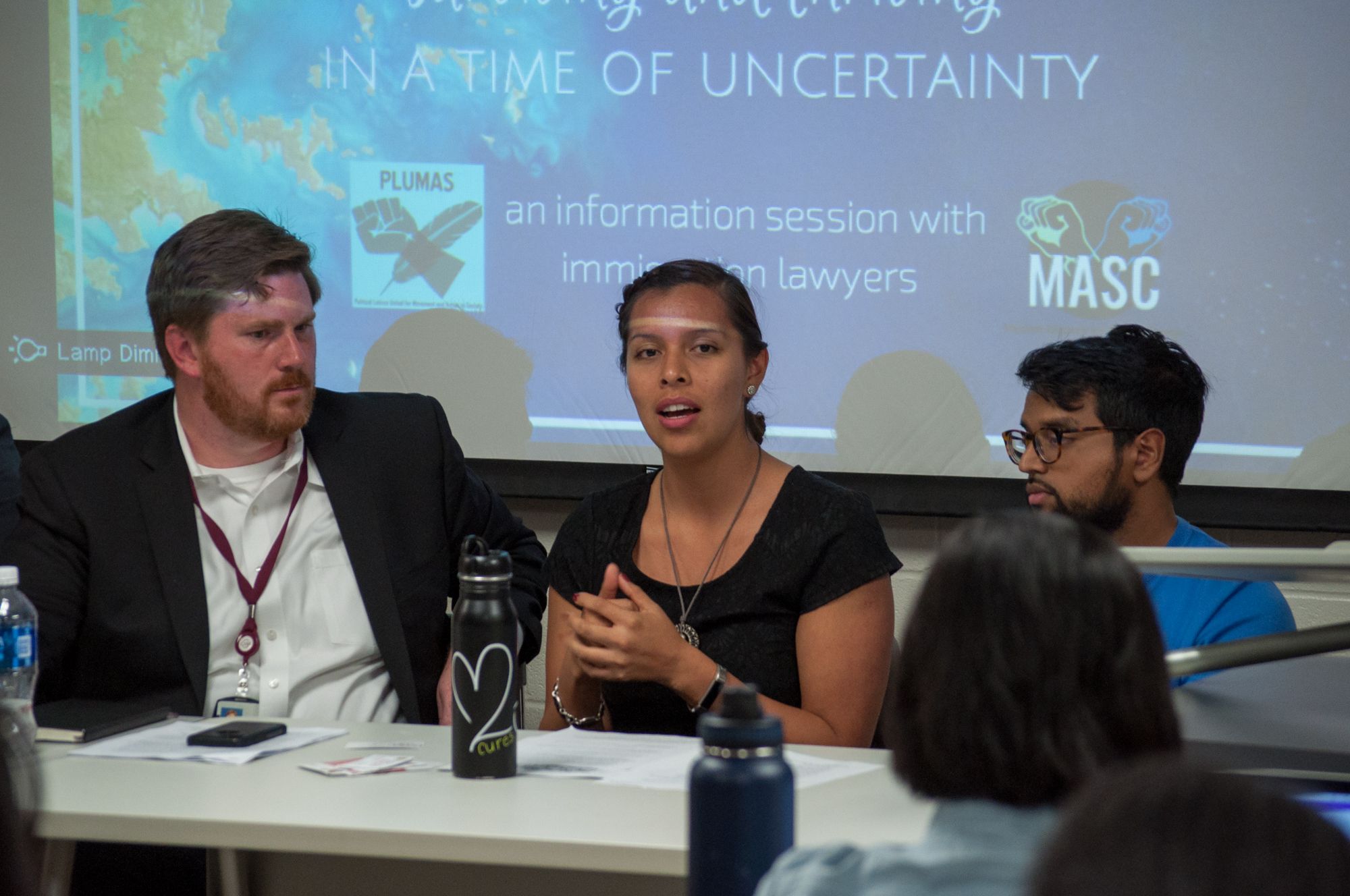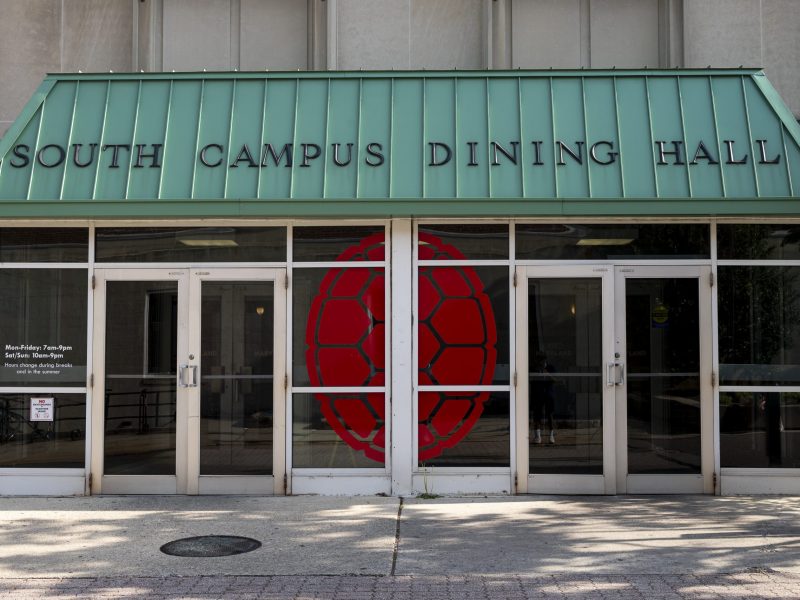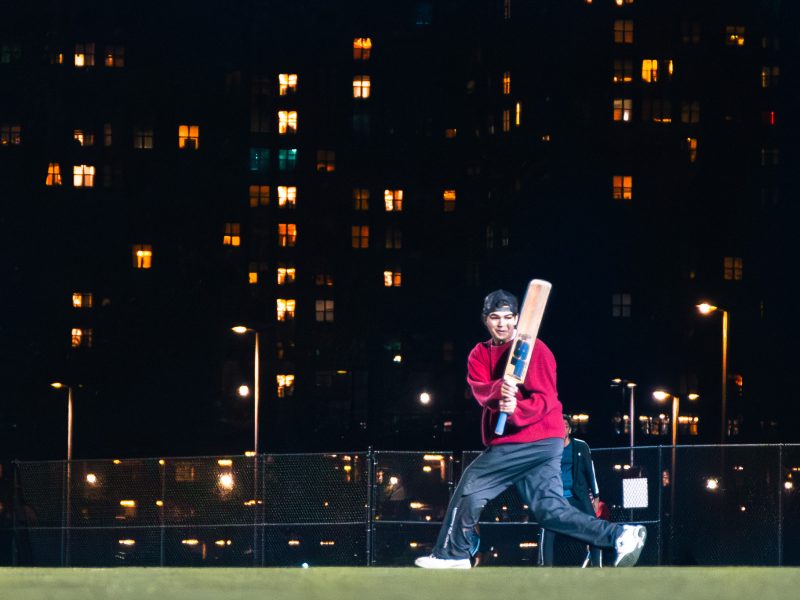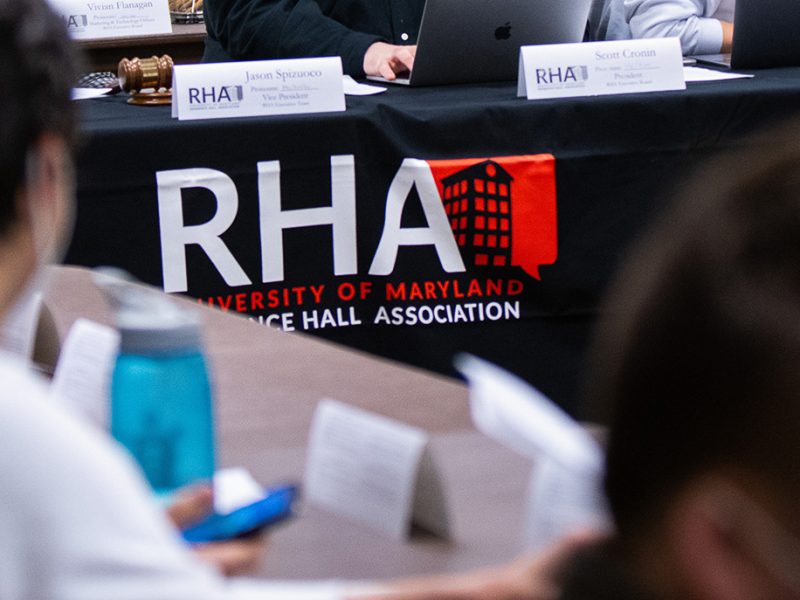With a hiring freeze prompted by the coronavirus pandemic underway, the University of Maryland will not fill its undocumented student coordinator position next academic year, Stamp Student Union Director Marsha Guenzler-Stevens wrote in a statement.
Until the university is able to resume its search to fill the position, the duties previously assigned to the coordinator will be distributed to other staff members, Guenzeler-Stevens wrote.
“We remain committed to creating a supportive and welcoming environment for undocumented and immigrant students,” she wrote.
The position was created in 2017 following student advocacy in the wake of President Trump’s election. It has served to connect undocumented students with resources, guidance and emotional support on campus, and student activists have spent the last three years fighting to make the originally temporary position a permanent one.
After repeatedly extending the position for the maximum three years, the university committed to making it permanent — only to come into conflict with students earlier this year over what that permanent role would look like.
[Read more: UMD announces changes to undocumented student coordinator position — again]
In February, administrators announced the coordinator’s responsibilities would be expanded to include first-generation and transfer students. Less than a month later, after student criticism, the administration backtracked, limiting the description again to “immigrant and undocumented student life” and proposing the creation of a second coordinator for first-generation and off-campus students.
Coordinator Laura Bohorquez Garcia, who has held the position since its creation, will leave in June after rejecting a new contract in February.
Undocumented students have been left in an especially vulnerable position by the coronavirus pandemic. The virus has disproportionately sickened minority communities and immigrant laborers are often deemed essential workers, putting them at greater risk of contracting the virus.
Immigrant workers are also more likely to be in jobs immediately impacted by the economic fallout of the virus, like the hospitality and service industry. Yet under recent relief packages, undocumented immigrants and mixed-status families aren’t eligible to receive federal aid.
Meanwhile, a Supreme Court decision looms for the Deferred Action for Childhood Arrivals program, which provides undocumented immigrants who arrived to the U.S. under the age of 16 legal documentation to work and study and shields them from deportation. The court’s decision, expected this June, could end the program, leaving roughly 700,000 DACA recipients in limbo.
Guenzler-Stevens emphasized that undocumented and immigrant students can still receive help from an immigration attorney in both the Undergraduate and Graduate Student Legal Aid offices. There will also continue to be a dedicated website and newsletter for these students, Guenzler-Stevens wrote.
[Read more: UMD’s undocumented student coordinator will leave after rejecting new contract]
But Amy Rivera, president of Political Latinxs United for Movement and Action in Society, expressed concern that the arrangement could leave the positions’ responsibilities to be scattered at a time they’re needed most.
“Right now — especially for undocumented students — is a scary turbulent time,” said Rivera, a freshman criminology and criminal justice and government and politics major. “It’s like they’re being forgotten, almost.”
However, the compromise is not a permanent one, Guenzler-Stevens wrote.
“While the financial impact of the pandemic will be challenging for Stamp and the campus community, we believe this position is important and we will work to find all necessary funds to support this full time position when we are able to resume our search,” she wrote.
Still, even though Rivera said she understands that the current situation is unprecedented, she criticized the university for drawing out a decision to solidify the position over the past three years.
“This position has always been in a state of limbo,” Rivera said. “We know it’s important, but for some reason, it always seems like we’ve had to [save] it.”



